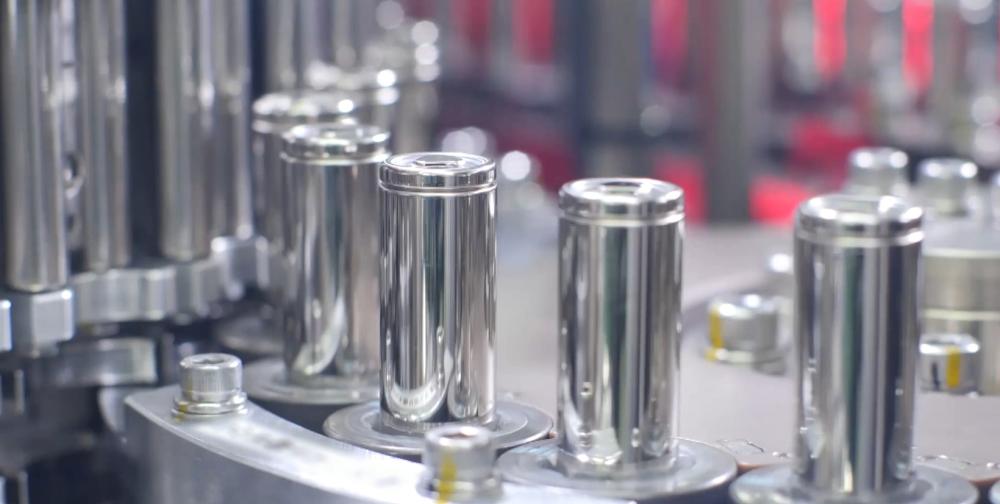According to foreign media reports, due to the supply of lithium and other raw materials is difficult to meet the expanding demand, the price of electric vehicle batteries is about to rise again in 2022 after a decade of sharp decline.

(Image source: Panasonic)
While mining companies scramble to increase production at existing facilities and look for new sources of supply, the benchmark price of lithium carbonate hit a new record at the end of 2021. China is the world's largest battery producer, with lithium raw materials at a domestic price of 261,500 yuan per ton (about $41,060 per ton), more than five times higher than last January.
Cathodes are the most expensive component of batteries, and the prices of other raw materials used in cathodes are rising all the way. Since January last year, the price of cobalt has doubled to $70,208 per ton; the price of nickel has risen by 15 percent to $20,045 per ton.
The data shows that the price of lithium battery packs was above $1,200 per kilowatt-hour in 2010, and by 2021 the price plummeted to $132. However, foreign media expect that the average price of battery packs may rise to $135 per kWh in 2022. Typically, cathode material accounts for about 30% of the total cost of the battery pack.
Over the past 10 years, automakers and battery manufacturers have struggled to develop long-life, high-performance batteries, and are also looking to continuously reduce the cost of producing batteries. However, rising raw material prices are undermining the technological and efficiency gains that companies have achieved in recent years.
And rising raw material prices threaten the electrification that the automotive industry is trying to achieve. You know, electrification has become a new industry torrent, and even companies like Toyota, which have always been not optimistic about pure electric vehicles, have also set their own electric vehicle production targets.
According to the data, due to the hot sales in the Chinese market, the total global sales of electric vehicles are expected to reach 5.6 million in 2021, compared with 3.1 million in 2020. A report released by S&P Global in December said that the market demand for electric vehicles will grow further in 2022, so the use of lithium this year will exceed production and will deplete previous inventories, which means that lithium will be seriously undersupplied. The supply of lithium carbonate in 2022 will jump from an estimated 497,000 tons in 2021 to 636,000 tons, but demand will jump from an estimated 504,000 tons to 641,000 tons or even higher, the report said.
In the short term, the supply of lithium will be very limited. Australian producers closed their mines after the 2020 low-price period, and as the outbreak continues, it has proven difficult for them to re-employ staff and restore production to pre-pandemic levels.
As the global automotive industry shifts from internal combustion engines to electric vehicles, so does the pressure to secure a supply of new raw materials. Battery manufacturers are working to enrich their supply sources, including the world's largest battery producer, the Chinese company CATL. Japanese lithium traders said: "In terms of cost competitiveness, no country can compete with China. ”
In 2020, Tesla acquired the right to extract lithium from deposits in Nevada, which means that automakers have begun to get rid of their dependence on middlemen. That same year, BMW also signed a five-year cobalt supply deal with Moroccan producer Managem for a deal valued at $113 million.
Last month, Volkswagen also signed an agreement with the Vulcan Group to source "zero carbon" lithium from the latter to supply demand from its battery cell factory. In addition, Volkswagen announced that it will establish a joint venture with the Belgian materials company Umiore to produce precursor and anode materials in Europe.
Toyota said that through its partnership with Toyota Tsusho, it has secured enough supplies of battery raw materials to meet its pre-2030 needs, including lithium.
Sanshiro Fukao, a senior researcher at the Itochu Research Institute, said that in the eyes of car companies, these raw materials are their bargaining chips with battery manufacturers, and if they cannot ensure the supply of raw materials, they have no choice but to buy batteries at high prices from battery manufacturers. In the context of global car companies are trying to reduce the price of electric vehicles, buying batteries at high prices may have fatal consequences.
Fukao said that for many car companies, soon after, the supply of battery raw materials will have the same problem as semiconductor supply. Moreover, due to the shortage of raw materials, car companies may not be able to produce electric vehicles as originally planned. "Whether car companies can ensure the supply of raw materials at this stage will determine whether they can win in 10 years," he said. ”